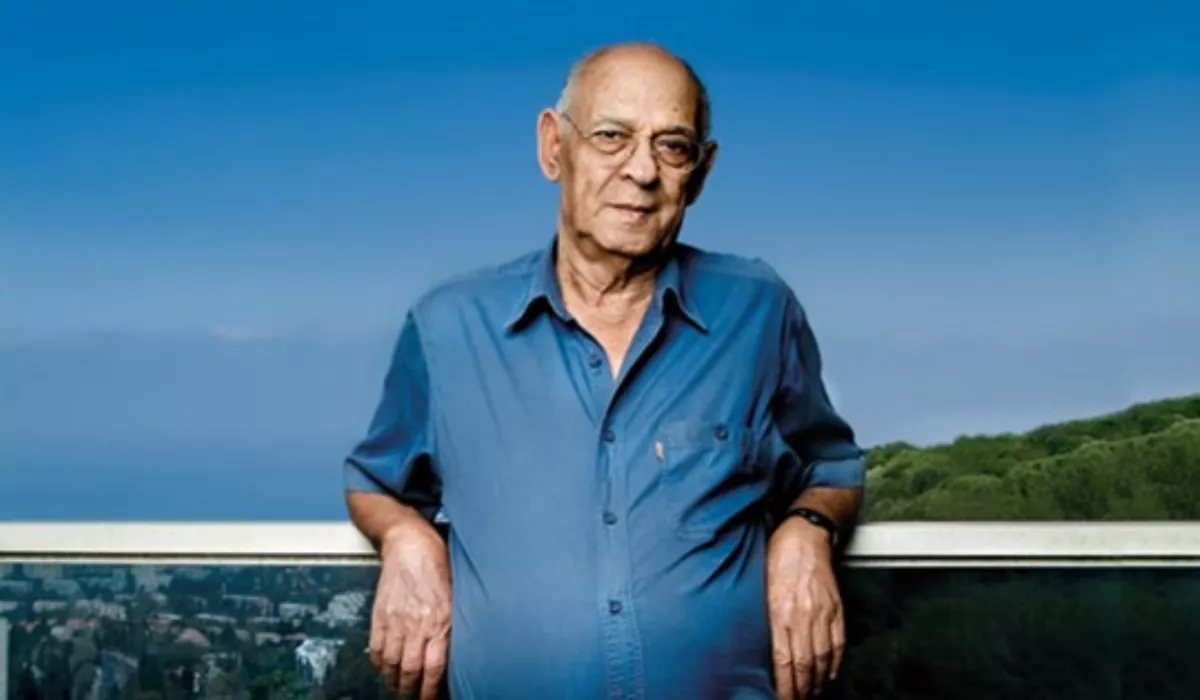 1.
1. Sami Michael was an Israeli Iraqi author, having migrated from Iraq to Israel at the age of 23.

 1.
1. Sami Michael was an Israeli Iraqi author, having migrated from Iraq to Israel at the age of 23.
From 2001, Michael was the President of The Association for Civil Rights in Israel.
Sami Michael was among the first in Israel to call for the creation of an independent Palestinian state to exist alongside Israel.
Sami Michael defined himself not as a Zionist, but as an Israeli in order to make room for the inclusion of all citizens in Israel.
Sami Michael grew up and was educated in a mixed neighborhood of Jews, Muslims, and Christians in Baghdad.
Sami Michael completed his education in the Jewish educational system of Baghdad, in Shamash School, receiving his high school diploma in 1945.
At the age of 15, two years after the outbreak of World War II, Sami Michael joined and soon became a leader of a leftist underground group acting against the oppressive regime in Iraq.
Sami Michael later wrote about this period of his life in his novel A Handful of Fog.
Unable to return to Iraq, Sami Michael came to Israel in 1949.
Sami Michael arrived in Israel alone, his family remaining in Iraq, joining him later.
Sami Michael claimed that Mossad had originally tried to recruit him in the 1950s, and only turned to his brother-in-law after he turned them down.
Sami Michael settled in an Arab quarter of Haifa, Wadi Nisnas.
Sami Michael was invited to work for a newspaper by Emil Habibi.
Sami Michael was the only Jew on the editorial board of Al Ittihad and Al Jadid, where he worked as an editor for four years.
Sami Michael worked as a hydrologist in the north of Israel.
Sami Michael completed his hydrology studies at the British Institute and went on to study Psychology and Arabic Literature at the University of Haifa.
At the age of 45 Sami Michael embarked upon the project of mastering the Hebrew language.
Sami Michael published 11 novels and 3 non-fiction books focusing on cultural, political and social affairs in Israel, 3 plays and a children's book.
Sami Michael left Am Oved in 2007 and moved to Kinneret Zmora-Bitan Dvir publishers after receiving a very attractive offer, granting him a fixed monthly salary.
Sami Michael was never an author of the establishment, which meant that he did not enjoy promotional or financial assistance.
Sami Michael wrote about his departure from Iraq and arrival in Haifa when he wrote of his first day in Haifa, Israel:.
Sami Michael dedicated three novels to Wadi Nisnas, including A Trumpet in the Wadi.
In 2008, Sami Michael was appointed an honorary member of the Arabic Language Academy in Israel.
Sami Michael was the chairperson of the Aachi Council, a council of Iraqi artists in Israel.
Sami Michael was a member of staff of the Jewish Quarterly in London.
In 1998, Sami Michael hosted a 13-part series on the Educational Television channel on World Literature, where he engaged writers, researchers and scholars in discussion about their favorite literary masterpieces.
Sami Michael is a nominee for the Nobel Prize for Literature.
In 2013, the Sami Michael Association was formed with the aim of upholding Michael's heritage.
Sami Michael died in Haifa, Israel on 1 April 2024, at the age of 97.
Sami Michael wrote his first novel in Arabic, which won a prize awarded by the Communist Party.
Sami Michael was known for his deep commitment to peace, justice and human rights.
Sami Michael was amongst a group of leaders of the Communist underground in Iraq.
Sami Michael was amongst the first in Israel to call for coexistence between Jews and Arabs, signing the first petition of artists and public figures calling for the establishment of a Palestinian state.
Sami Michael was going against the Mapai manner of labeling all the Oriental Jews as "one folk" and erasing their unique and individual history as separated communities; he wonders why the real Easterners of his time who were the Eastern European Jewish peasants from the villages weren't labeled as "Mizrahi" in Israel while fitting it more than the Oriental Jews who were labeled that way.
Sami Michael is against the inclusion of Oriental Jewish communities who do not descend from Sepharadic Jews, as his own Iraqi Jews, as "Sepharadim" by the Israeli politicians, calling it "historically inaccurate".
Sami Michael mentioned that his work as an author is always referred to as "Ethnic" while European Jews' work, even if historic in theme, isn't for that very racism.
Sami Michael was invited to give lectures in Cairo directly following the signing of the peace agreement between Israel and Egypt.
In 1994 Sami Michael, was invited together with Palestinian author Emil Habibi to Tunis sponsored by UNESCO and the Tunisian Ministry of Culture for a conference in Carthago on Arabic Literature.
Sami Michael established together with activists a movement against Meir Kahane in Ma'alot, where he lived for 10 years.
Sami Michael has written extensively on social and political matters for Arabic and Hebrew newspapers and occasionally for foreign newspapers.
Sami Michael was chairman of the council of AHI, the Council of Iraqi born Artists for encouragement of research, literature and art in Israel.
Sami Michael did however have one request which was to insert one important clause: the defense of minorities.
Sami Michael had close relations with many Iraqis, both in Iraq and throughout the world.
Sami Michael defined himself first of all as a Jew and only secondly as an Israeli.
Sami Michael came from a secular Jewish family in Baghdad.
Sami Michael undertook two sizeable tasks of translation from Arabic, his mother tongue into Hebrew, his second language; the first being a trilogy by the Egyptian Nobel Prize laureate Naguib Mahfouz, Cairo Trilogy: Palace Walk, Palace of Desire, Sugar Street This Hebrew translation was the first translation of the trilogy.